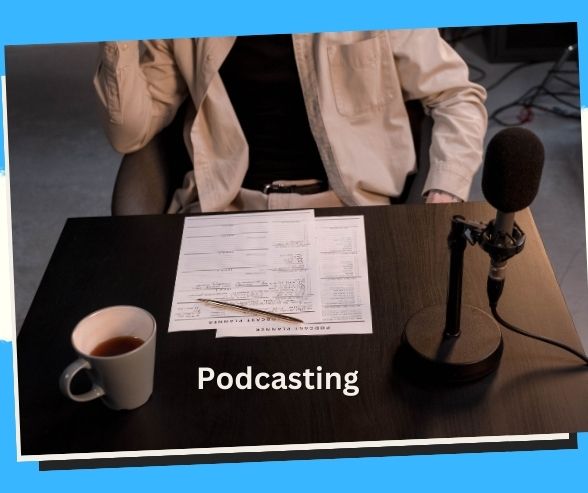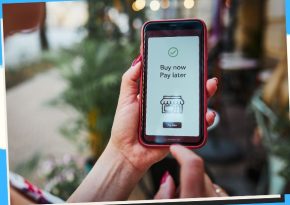
Unlock Business Growth: Harness the Power of Podcasting for Small Businesses
Discover how podcasting can amplify your small business presence and attract loyal customers!
How to Harness the Power of Podcasting for Your Small Business 🎙️
In a world filled with digital noise, finding innovative ways to connect with your audience is key for small businesses. Enter podcasting – a dynamic and engaging medium that allows you to reach your target market wherever they are. Whether you’re a budding entrepreneur or a seasoned small business owner, starting a podcast can be a game-changer for your brand. In this comprehensive guide, we’ll explore everything you need to know to launch a successful podcast for your small business.
1. Why Podcasting Matters for Small Businesses
Podcasting has emerged as one of the most effective marketing tools for small businesses, and for good reason. Here’s why:
- Reach a Wider Audience: With over 100 million Americans tuning in to podcasts every month, this medium offers a vast audience for your message.
- Build Trust and Authority: Hosting a podcast allows you to showcase your expertise in your industry, positioning your business as a trusted authority.
- Create Deeper Connections: Unlike other forms of content, podcasts offer a more intimate and personal connection with your audience, fostering loyalty and brand affinity.
2. Getting Started: Planning Your Podcast
Before diving into the world of podcasting, it’s essential to have a clear plan in place. Here’s how to get started:
- Define Your Audience: Identify your target market and tailor your podcast content to meet their needs and interests.
- Choose a Format: Consider whether you’ll host interviews, solo episodes, or a combination of both. Decide on the length and frequency of your episodes.
- Craft Compelling Content: Brainstorm episode topics that align with your business goals and resonate with your audience. Aim to provide valuable insights, tips, and entertainment.
- Select Equipment: Invest in a quality microphone, headphones, and recording software to ensure professional sound quality.
3. Recording and Editing Your Podcast
Now that you have a plan in place, it’s time to start recording your podcast. Follow these tips for a smooth recording process:
- Find a Quiet Space: Choose a quiet environment with minimal background noise to ensure clear audio.
- Test Your Equipment: Before recording, test your microphone and recording software to ensure everything is functioning properly.
- Focus on Delivery: Speak clearly and confidently, and remember to engage with your audience to keep them interested.
- Edit Thoughtfully: Use editing software to remove any mistakes or long pauses, but be careful not to over-edit, as authenticity is key in podcasting.
4. Branding and Promotion
Building a strong brand and promoting your podcast are crucial steps in attracting and retaining listeners. Here’s how to do it effectively:
- Create Eye-Catching Artwork: Design compelling cover art that reflects your brand identity and attracts attention on podcast platforms.
- Write Compelling Titles and Descriptions: Craft engaging titles and descriptions for your episodes that entice listeners to tune in.
- Utilize Social Media: Leverage social media platforms to promote your podcast and engage with your audience. Share behind-the-scenes content, episode teasers, and listener testimonials.
- Collaborate with Influencers: Partner with influencers or industry experts to expand your reach and attract new listeners.
5. Engaging with Your Audience
Interacting with your audience is essential for building a loyal following and fostering community around your podcast. Here are some strategies to engage with your listeners:
- Encourage Listener Feedback: Invite listeners to submit questions, comments, and topic suggestions via email or social media.
- Host Q&A Sessions: Dedicate episodes to answering listener questions and addressing their concerns.
- Feature Listener Stories: Highlight listener success stories or testimonials to showcase the impact of your podcast.
- Create a Community: Establish a Facebook group or online forum where listeners can connect and discuss episode topics.
6. Monetization Strategies
While podcasting can be a valuable marketing tool for your small business, it also offers monetization opportunities. Here are some ways to generate revenue from your podcast:
- Sponsorships and Advertising: Partner with brands relevant to your audience and offer sponsored content or advertising slots within your episodes.
- Merchandise Sales: Create and sell branded merchandise such as t-shirts, mugs, or stickers to your listeners.
- Premium Content: Offer exclusive bonus episodes, behind-the-scenes content, or access to a private community in exchange for a subscription fee.
- Affiliate Marketing: Promote products or services as an affiliate and earn a commission for each sale generated through your podcast.
7. Analyzing and Optimizing Your Podcast
To ensure the success and growth of your podcast, it’s important to regularly analyze your performance and make adjustments as needed. Here’s how to do it:
- Track Key Metrics: Monitor metrics such as downloads, listener demographics, and engagement levels to gauge the effectiveness of your podcast.
- Collect Feedback: Solicit feedback from listeners through surveys or reviews to identify areas for improvement.
- Experiment with Different Formats: Test different episode formats, lengths, and topics to see what resonates best with your audience.
- Stay Up-to-Date with Trends: Keep an eye on industry trends and changes in listener preferences to stay ahead of the curve.
Benefits of Podcasting for Small Businesses
- Enhanced Brand Visibility: Podcasting provides a platform for small businesses to showcase their expertise, reach new audiences, and establish themselves as industry leaders.
- Audience Engagement: By delivering valuable content in an accessible format, podcasts foster deeper connections with your audience, leading to increased loyalty and engagement.
- Cost-Effective Marketing: Compared to traditional advertising channels, podcasting offers a cost-effective means of reaching a targeted audience without breaking the bank.
- Authority Building: Consistently delivering high-quality content through podcasts positions small businesses as trusted authorities in their respective fields, fostering credibility and trust among listeners.
- Multi-Platform Accessibility: Podcasts can be accessed anytime, anywhere, making them an ideal medium for reaching busy consumers across various devices and platforms.
- Relationship Building: Through interviews, discussions, and storytelling, podcasts provide a unique opportunity to humanize your brand and build authentic relationships with your audience.
- Monetization Potential: Podcasts offer multiple avenues for monetization, including sponsorships, advertising, product placements, and premium content offerings.
- SEO Benefits: Podcasts can improve your online visibility and search engine rankings, as each episode creates additional content indexed by search engines.
- Market Research: Engaging directly with your audience through podcasts allows for valuable feedback and insights, aiding in refining products, services, and marketing strategies.
- Flexibility and Creativity: Podcasting empowers small businesses to showcase their creativity and personality, allowing for experimentation with different formats, themes, and storytelling techniques.
Case Studies: Real-Life Success Stories
- The Hustle Podcast: Sarah’s boutique bakery saw a significant boost in online sales after launching a podcast featuring baking tips, behind-the-scenes stories, and interviews with renowned chefs.
- TechTalk for Startups: Adam’s IT consultancy firm expanded its client base by sharing expert advice, industry insights, and success stories through a tech-focused podcast aimed at startups and entrepreneurs.
- Mindful Entrepreneurship: Emma’s wellness center gained traction in the local community and beyond by hosting a podcast centered on mindfulness, self-care practices, and interviews with holistic health experts.
- Creative Conversations: Tom’s graphic design studio established itself as a creative hub by hosting a podcast exploring design trends, client projects, and conversations with artists from diverse backgrounds.
- Small Biz Success Stories: Lisa’s podcast highlighting success stories from small businesses across different industries garnered a dedicated following and attracted sponsorship opportunities.
- Legal Insights for Entrepreneurs: David’s law firm differentiated itself from competitors by offering legal advice, compliance tips, and case studies through a podcast tailored to small business owners.
- Local Flavor Podcast: Javier’s restaurant increased foot traffic and customer loyalty by sharing recipes, foodie tips, and interviews with local suppliers on a podcast celebrating community and cuisine.
- Financial Freedom Forum: Jessica’s financial consultancy firm attracted high-net-worth clients by sharing investment strategies, wealth management tips, and market insights through a podcast targeting entrepreneurs and investors.
- The Leadership Lounge: Mark’s leadership development consultancy positioned itself as a thought leader in the industry by hosting a podcast discussing leadership principles, case studies, and interviews with seasoned executives.
- The Marketing Mix: Rachel’s digital marketing agency expanded its client base by offering practical marketing advice, industry trends, and case studies through a podcast tailored to small businesses and startups.
Key Takeaways for Podcasting Success
- Define Your Audience: Identify your target audience and tailor your content to meet their needs and interests.
- Consistency is Key: Establish a regular publishing schedule to keep your audience engaged and build momentum over time.
- Quality Over Quantity: Focus on delivering high-quality content that adds value to your listeners’ lives rather than prioritizing quantity.
- Promotion Matters: Allocate time and resources to promote your podcast across various channels to reach a wider audience.
- Invest in Equipment: While you don’t need top-of-the-line equipment, investing in decent microphones and recording software can significantly improve the quality of your podcast.
- Engage with Your Audience: Foster a sense of community by actively engaging with your listeners through social media, email newsletters, and live events.
- Collaborate and Network: Collaborate with other podcasters, industry experts, and influencers to expand your reach and credibility.
- Monitor and Adapt: Regularly monitor your podcast’s performance metrics and listener feedback to identify areas for improvement and adaptation.
- Stay Authentic: Be genuine and authentic in your podcasting endeavors, as audiences can quickly sense insincerity.
- Have Fun: Enjoy the process of podcasting and let your passion shine through in your content, as enthusiasm is contagious.
FAQs About Podcasting for Small Businesses
- Do I need professional equipment to start a podcast?
- While professional equipment can enhance audio quality, you can start with basic recording tools and upgrade as your podcast grows.
- How long should my podcast episodes be?
- Aim for a duration that allows you to deliver valuable content without losing audience interest, typically ranging from 20 to 60 minutes.
- How do I attract guests for interviews?
- Reach out to industry experts, influencers, and thought leaders with a compelling pitch highlighting the benefits of appearing on your podcast.
- How do I monetize my podcast?
- Explore monetization options such as sponsorships, advertising, listener donations, merchandise sales, and premium content offerings.
- What hosting platform should I use for my podcast?
- Popular podcast hosting platforms include Libsyn, Podbean, Buzzsprout, and Anchor, each offering different features and pricing plans.
- How do I promote my podcast?
- Utilize social media, email newsletters, guest appearances on other podcasts, press releases, and SEO strategies to promote your podcast effectively.
- Should I script my podcast episodes?
- While some podcasters prefer scripted content for precision, others opt for a more spontaneous approach to maintain authenticity and engagement.
- How do I measure the success of my podcast?
- Track metrics such as downloads, listener demographics, engagement rates, and listener feedback to gauge the success of your podcast.
- How often should I release new episodes?
- Consistency is key, but the frequency of episodes depends on your content production capacity and audience preferences.
- What if I run out of ideas for podcast topics?
- Stay curious and explore diverse topics within your niche, engage with your audience for suggestions, and seek inspiration from industry trends and news.
Conclusion: Unleash Your Podcasting Potential
In the dynamic landscape of small business marketing, podcasting emerges as a powerful tool for building connections, enhancing visibility, and fostering community. By
leveraging the benefits of podcasting, as evidenced by real-life case studies, and implementing key takeaways, small businesses can unlock new opportunities for growth, engagement, and success. Whether you’re a budding entrepreneur or an established brand, embracing podcasting can amplify your voice, expand your reach, and leave a lasting impact on your audience. So, grab your microphone, hit record, and embark on a podcasting journey that’s as unique as your business itself. 🚀
Key Phrases
- Podcasting for Small Businesses
- Small Business Podcast Strategies
- Podcasting Growth for SMEs
- Small Business Branding through Podcasts
- Effective Podcasting for Entrepreneurs
- Small Business Podcasting Tips
- Podcasting ROI for SMBs
- Leveraging Podcasts for Small Business Success
- Small Business Podcast Marketing
- Podcast Monetization for SMEs
Best Hashtags
- #SmallBusinessPodcasting
- #PodcastingStrategy
- #SMEPodcasts
- #BusinessBranding
- #EntrepreneurialPodcasts
- #PodcastTips
- #PodcastROI
- #MarketingStrategy
- #DigitalMarketing
- #SmallBizSuccess
Save/Share this story with QR CODE
Disclaimer
This article is for informational purposes only and does not constitute endorsement of any specific technologies or methodologies and financial advice or endorsement of any specific products or services.
📩 Need to get in touch?
Feel free to Email Us for comments, suggestions, reviews, or anything else.
We appreciate your reading. 😊Simple Ways To Say Thanks & Support Us:
1.) ❤️GIVE A TIP. Send a small donation thru Paypal😊❤️
Your DONATION will be used to fund and maintain NEXTGENDAY.com
Subscribers in the Philippines can make donations to mobile number 0917 906 3081, thru GCash.
3.) 🛒 BUY or SIGN UP to our AFFILIATE PARTNERS.
4.) 👍 Give this news article a THUMBS UP, and Leave a Comment (at Least Five Words).
AFFILIATE PARTNERS

World Class Nutritional Supplements - Buy Highest Quality Products, Purest Most Healthy Ingredients, Direct to your Door! Up to 90% OFF.
Join LiveGood Today - A company created to satisfy the world's most demanding leaders and entrepreneurs, with the best compensation plan today.



 Business Technology, Finance Technology & Information Technology
Business Technology, Finance Technology & Information Technology





